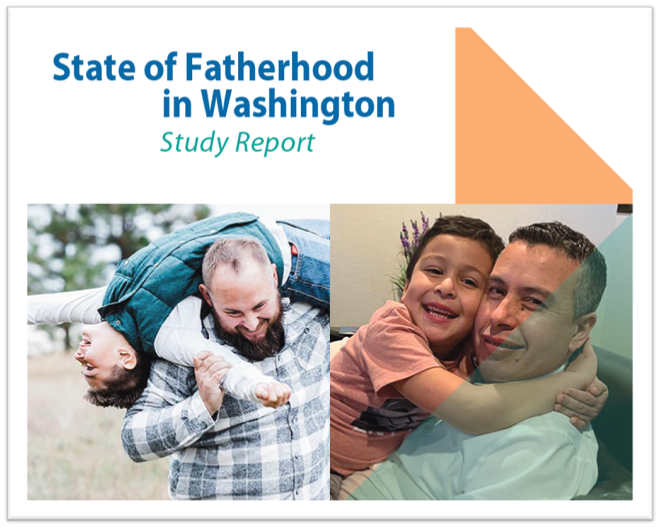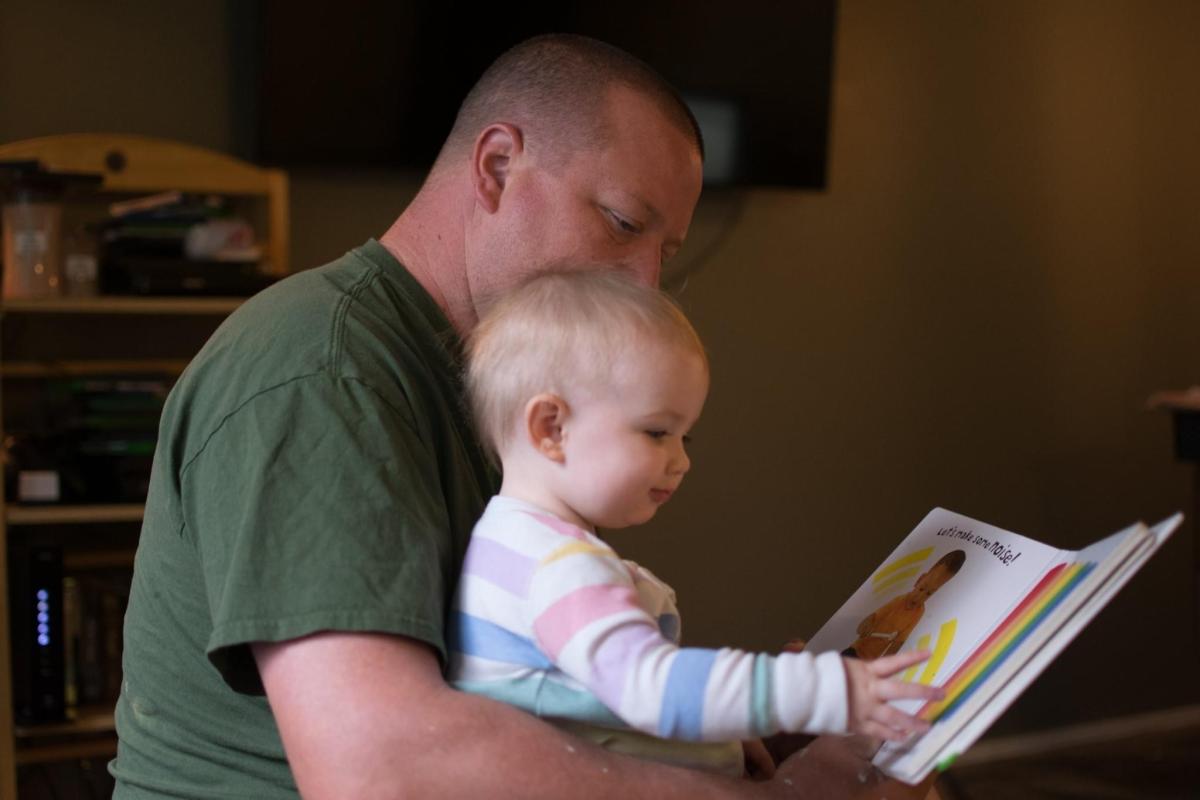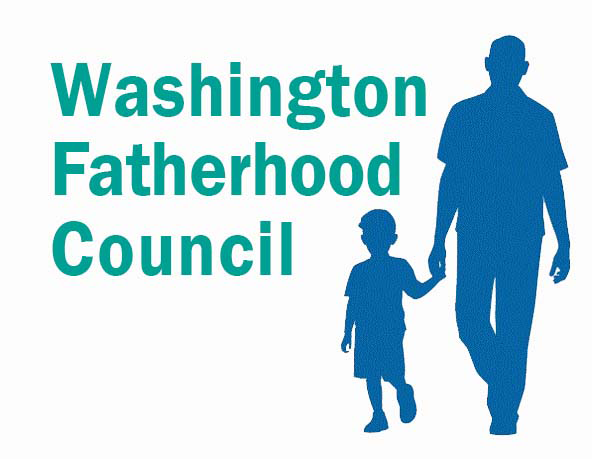
The State of Fatherhood in Washington study is a first-of-its-kind effort to assess the current state of the Washington fatherhood ecosystem to develop a clearer understanding of progress among individual agencies, programs and policies and their contributions toward the Washington Fatherhood Council’s goals and vision. The study considered the national context of fatherhood policies, programs and leadership as well as lessons learned from other states’ fatherhood commissions and initiatives. This backdrop was used to evaluate, in detail, the fatherhood landscape in Washington state.
The study ran from June 2023 through June 2024 and included the Washington Fatherhood Council, Camber Collective Consulting Group and researchers from the University of Washington. A stakeholder engagement process was also key in developing this report. The stakeholders included key state and local agencies, council members and fathers with lived experience, who provided valuable insights to shape key focus areas for improvement.
The study was designed around five core activities that collectively inform findings and recommendations:
- Review national and state data, policies and programmatic context as it relates to fatherhood inclusion, access and belonging efforts.
- Develop case studies through interviews with statewide and regional fatherhood initiatives in Connecticut, Ohio, Texas and California.
- Implement a statewide fathers’ survey and provide deep-dive interviews to capture additional insights, bright spots and specific needs of fathers in Washington.
- Implement a provider survey to update the 2019 Washington Fatherhood Council environmental scan.
- Conduct deep dives with state agency partners to develop a Washington state agency landscape of current data, policies, programs, services, funding, systems change and commitments related to fatherhood inclusion.
Key Findings:
- Fathers and fatherhood figures experience stigmas and inequities.

- Data and monitoring systems that capture fathers are not fully developed, making it hard to assess and address inequities.
- Policies and approaches to fatherhood inclusion remain inconsistent.
- Representation of fathers in program and policy design is limited. Increased cross-agency funding, planning and coordination are needed.
- The council plays a critical role in shaping solutions to system challenges fathers face.
This study represents the culmination of a year’s worth of work to understand fatherhood in Washington. What we found is that more work must be done to understand the unique experiences of fathers, providers and systems across the state, and the study provides concrete next steps.
2024 State of Fatherhood in Washington - Full Report
2024 State of Fatherhood in Washington - Executive Summary
The 2024 State of Fathers in Washington Study - Presentations at the 2024 Fatherhood Summit
Survey of Fathers - Findings and Grounding Narrative: Presented by researcher and father ally Holly Schindler, Ph.D., Associate Professor at the University of Washington and Associate Fellow at Harvard University’s Center on the Developing Child. Presentation Slide
State Agency Leadership Panel - Reflections on Study Learnings, Opportunities and Commitments: Agency Leadership Panel Video
- Employment Security Department: Employment Connections – Norton Sweet, Regional Director. ESD Slides
- Department of Corrections: Reentry Division – Danielle Armbruster, Assistant Secretary. DOC Study Slides
- Department of Children, Youth, and Families: Judy King, Director of Family Support Programs, Partnership and Collaboration. DCYF Study Slides
- Department of Social and Health Services: Economic Services Administration – Terry Redmon, Assistant Secretary.
- Health Care Authority: Medicaid – Jason McGill, Assistant Director for Medicaid Programs. HCA Study Slides
- Department of Health: State Health – Tao Sheng Kwan-Gett, Chief Science Officer. DOH Study Slides
Case Studies from Four Other Successful Programs
